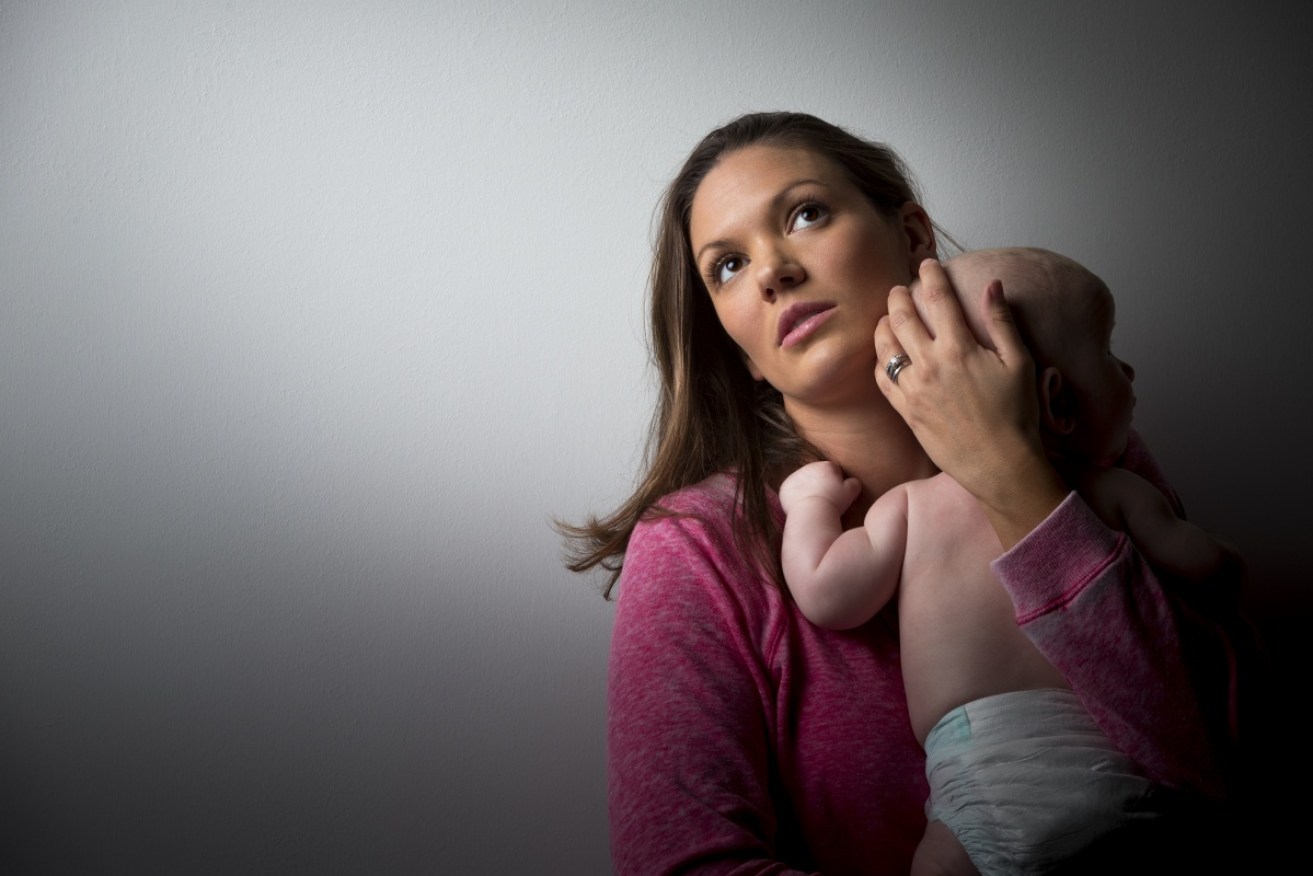Anxiety and depression in new mums is common but treatable


Anxiety and depression are common among new mums, but they are treatable. Photo: Getty
Olivia Wilkins lay in bed frozen with fear. In a room down the hall her new baby daughter Alice was fast asleep, yet Olivia was wide awake, staring at a darkened ceiling, bathed in sweat and with her mind racing.
“I was petrified that she would wake up and I wouldn’t be able to settle her, or be able to get back to sleep myself,” says Olivia.
“Just these irrational fears. I felt trapped in my head, like a jail cell with no escape.”
This wasn’t a one-off for Olivia. Something similar happened night after night for eight weeks after Alice was born. On top of that Olivia could barely eat. She often threw up what she did manage to get down. She was mentally and physically exhausted but at the same time charged with adrenaline.
One day it got so bad that Olivia was raced to her local emergency department fearing a heart attack. While mistaken in that, she was absolutely correct in her fears that something was dreadfully wrong.
Olivia was diagnosed with perinatal anxiety, and within a couple of days she was admitted, along with her baby Alice, to a psychiatric clinic for mothers and their babies. (Perinatal means either side of birth, and includes pregnancy as well as the first year after a child is born.)
“I was there for around a month,” she says. “But that was just the first step. After that it was still a long slow process to get better.” Olivia’s story is not unusual.
As CEO of Perinatal Anxiety & Depression Australia (PANDA) I hear stories every day of women going through similar ordeals. More than one in seven new mums experience a mental illness after having a baby. Some experience debilitating anxiety, panic and agitation like Olivia did, while others experience depressed moods or feelings of hopelessness.
In fact, there are a whole range of symptoms. Each person and family experiences perinatal anxiety and depression differently. Some have milder symptoms, while others experience it so badly that their own lives and those of their babies are put at risk.

More than one in seven new mums experience a mental illness after having a baby.
What each family has in common is a serious illness that affects 100,000 other Australian families every year. PANDA’s National Helpline supports these families from all across Australia to understand what they’re feeling and how to seek further help if necessary. Our team engages in more than 10,000 candid and compassionate conversations every year with women and men affected by perinatal anxiety and depression.
Through these conversations, PANDA has built a wealth of knowledge – knowledge that during Perinatal Depression & Anxiety Awareness Week we want to share as widely as possible. There is still widespread confusion about perinatal anxiety and depression, and too many people still suffer for longer than they need to.
Although new research being released this week shows that the community is more understanding and less judgmental of perinatal mental illness, our Helpline figures show that many women delay seeking help because they feel shame about their illness. They also feel shame for not meeting their own expectations of what kind of parent they should be.
A belief in the community that there is no stigma attached to perinatal mental illness is not borne out by what we know from the tens of thousands of callers to our Helpline. It’s a sombre reality we grapple with every day here at PANDA.

Many women delay seeking help because they feel shame about their illness. Photo: Getty
Thankfully, Olivia has recovered from her own perinatal anxiety. Her daughter Alice, now four, has a little sister Penny, and things are going well for their family.
However, we still have a lot of work ahead of us. There are still 100,000 Australian families every year that need our help so they can recover from perinatal anxiety and depression and not suffer one day longer than they need to.
You can help too, by being aware of the symptoms and keeping an eye out for all new mums and dads. If you are concerned about them take a moment to ask how they are coping. And if they are not coping, suggest they are not alone, perinatal anxiety and depression is common, and suggest they seek help sooner rather than later.
Terri Smith is CEO of PANDA – Perinatal Anxiety & Depression Australia Perinatal Depression & Anxiety Awareness Week 2016 runs from Sunday November 13 until Saturday November 19.
If you suspect you or someone you know is struggling with perinatal depression and anxiety, visit panda.org.au or call PANDA’s National Helpline on 1300 726 306. For more information, visit PANDA’s website








